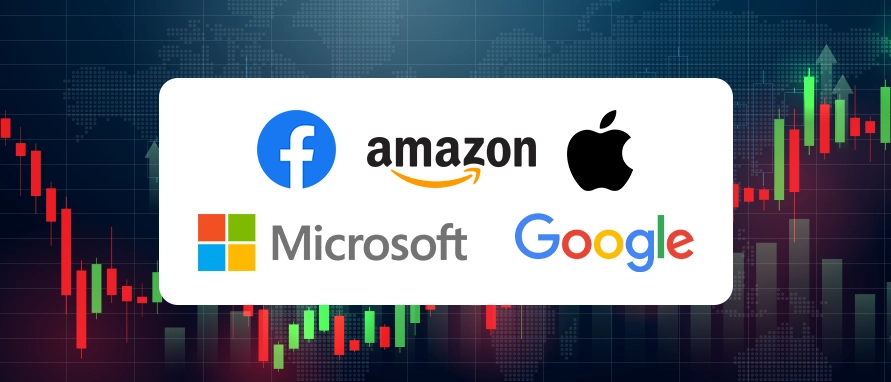FAAMG is an acronym representing five prominent technology companies: Facebook (now Meta), Amazon, Apple, Microsoft, and Google (now Alphabet). These companies are known for their significant influence on the tech industry, market capitalization, and impact on global markets. While the original term "FAANG" included Netflix, the inclusion of Microsoft in the acronym, often referred to as MAANG or sometimes FAAMG, reflects the growing importance of Microsoft in cloud computing and enterprise solutions.FAAMG stocks have emerged as a dominant force in global markets over recent years. Companies like Facebook (now Meta), Amazon, Apple, Microsoft, and Google (Alphabet) drive market capitalisation, innovation, and investor interest, making them key for understanding global trends and their impact on Indian investments.



.jpeg)












